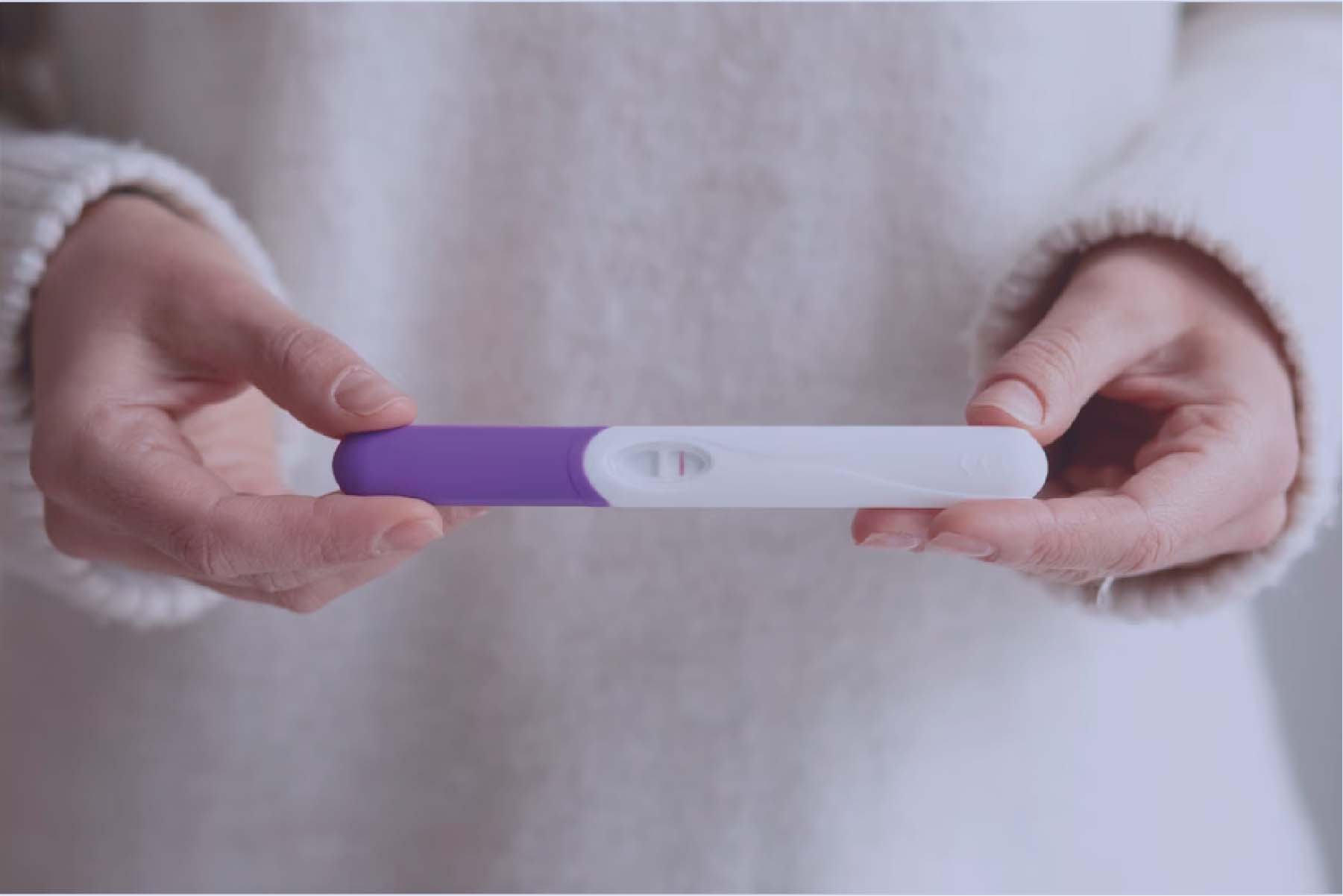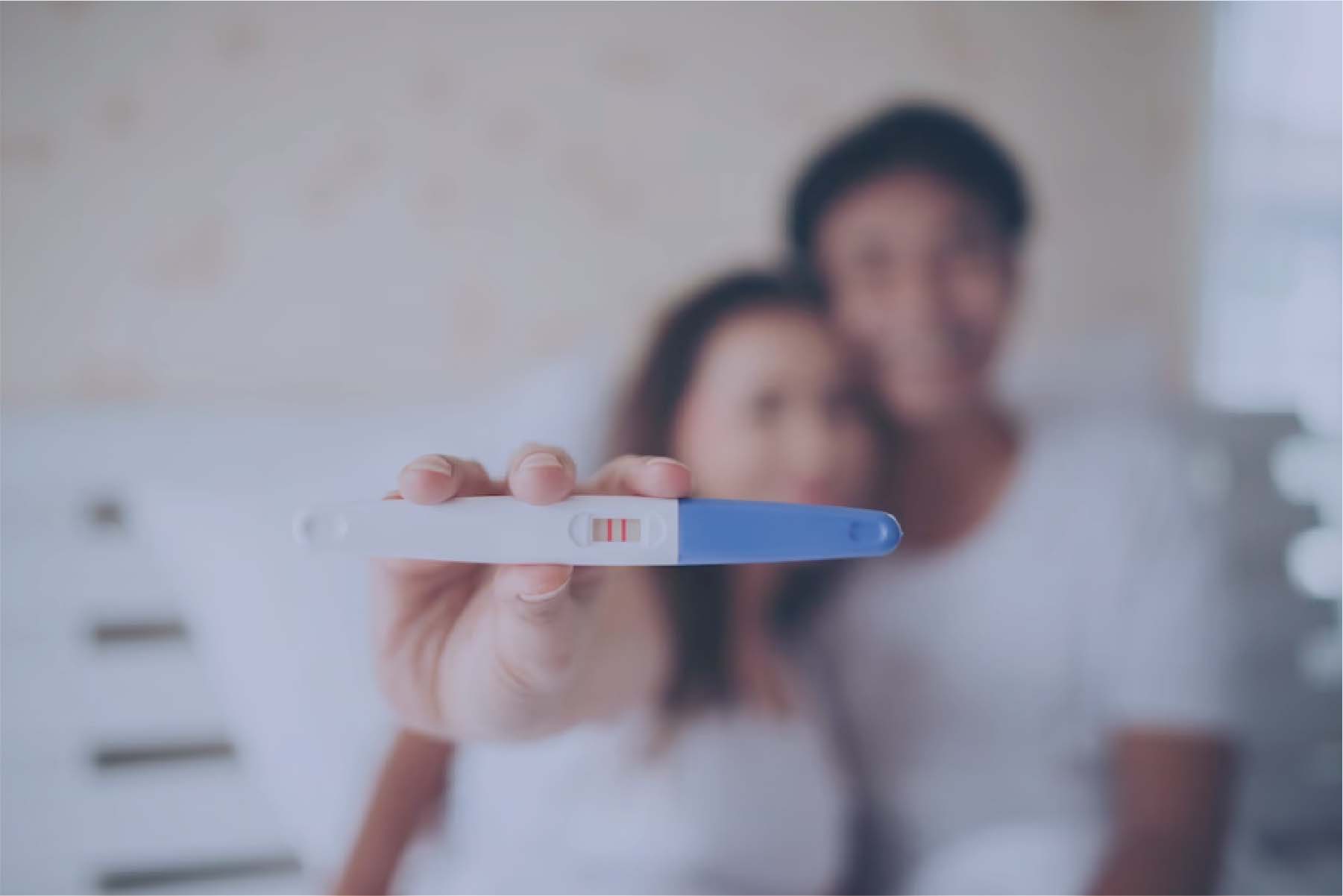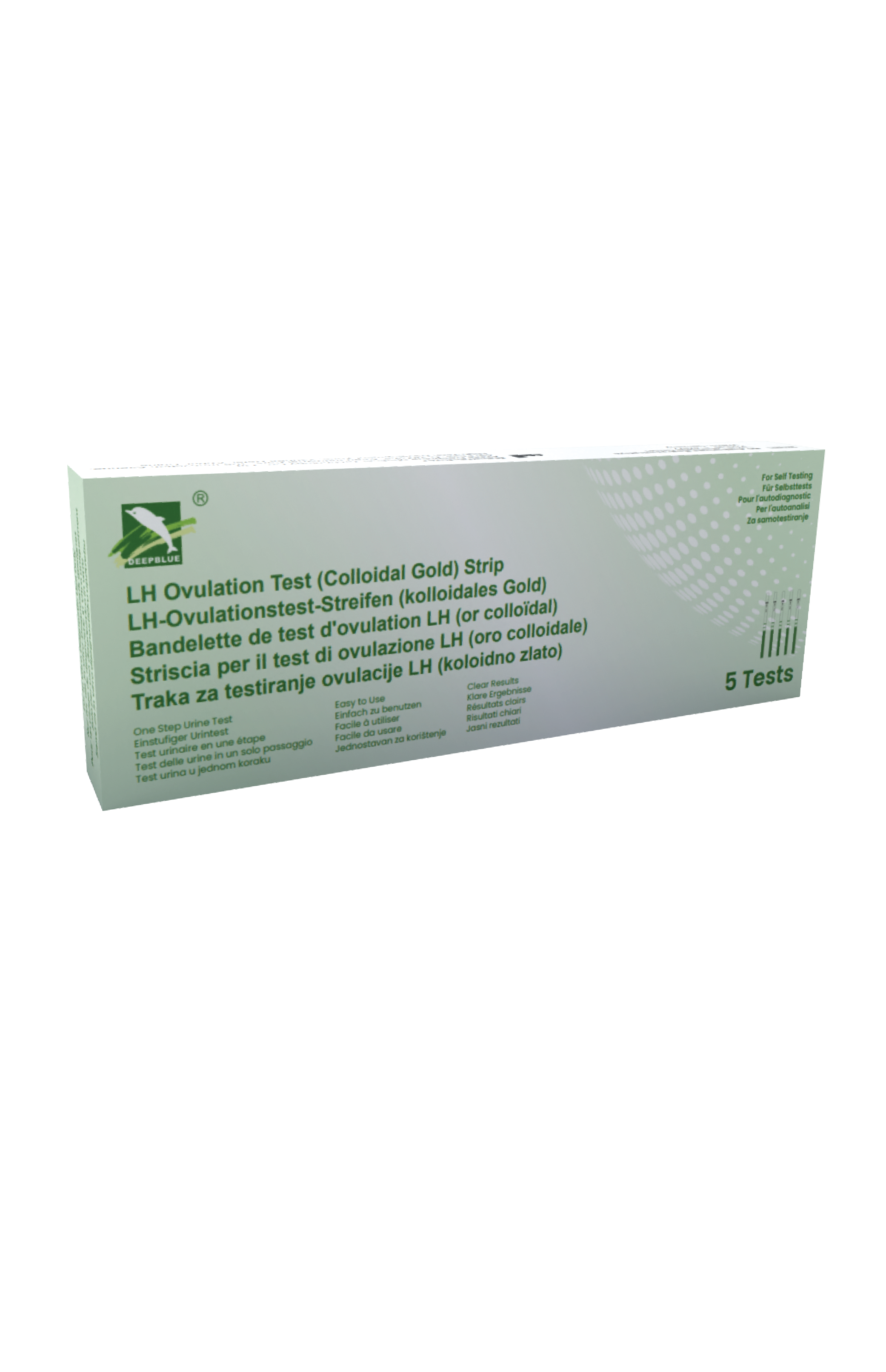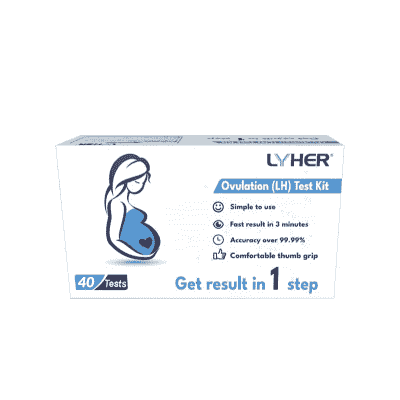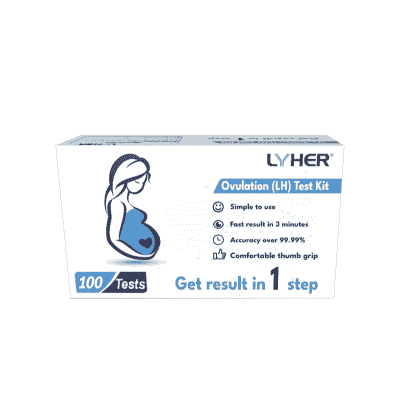Buy Urine Tests
In our OdemShop, you'll find a wide range of urine tests, providing a quick and easy method for diagnosing various conditions.
An overview of urine tests - diagnosis and application.
Urine tests are an important diagnostic method commonly used in medicine and healthcare. They can help with many different types of ailments to find out what's going on.
In this article, we'll take a look at what tests are, how they're done, and how they're used - so we can better help those around us!
What is a urine test?
A urine test is a basic medical examination that helps diagnose various diseases. Doctors use this method to analyze various elements in urine, including protein, red and white blood cells, glucose, and other components. The test can also reveal the presence of bacteria, which could indicate a urinary tract infection.
Red blood cells, also known as erythrocytes, in the urine can indicate a variety of urologic conditions. They can come in a variety of forms, such as submerged or isomorphic erythrocytes. White blood cells called granulocytes may also appear in the urine and often indicate inflammation, possibly in the urinary or genital areas. Protein in the urine, especially with increased excretion, could be a sign of kidney disease.
The presence of certain elements such as cylinders in the urine may also indicate health problems. There are several types of cylinders, including hyaline, amorphous, fine granular, and mixed. The finding of these particles requires further examination by a physician.
In addition, urine can be tested for a variety of other substances. For example, ketones may indicate diabetes, while a high concentration of glucose in the urine may also be a sign of this condition. Crystals in the urine may indicate kidney stones, and fats in the urine, also called lipid droplets, could indicate a metabolic disease.
The color and consistency of urine can also provide clues to health. Black urine, for example, may indicate liver disease, while concentrated urine may indicate dehydration.
Thus, a urine test provides a wealth of information about health status. However, it is important to note that a urine test cannot replace a visit to the doctor, and atypical findings should always be investigated further. Any positive finding requires appropriate medical attention and treatment of the underlying condition.
What are the types of urine tests?
Urine tests are one of the most common methods used to diagnose various medical conditions. There are different types of urine tests that are used to monitor diseases, infections, pregnancy, and drug use.
Clinical urine test
A clinical urine test is a test that doctors use to detect certain functional and chemical abnormalities in the body. It is usually done as part of a routine check-up or when a condition is suspected.
Some of the specific tests covered by this procedure are: Protein urine tests for diagnostic testing; nitrite tests to detect bacteria in the urinary tract; sugar tests that diagnose diabetes; and sediment tests that look at possible abnormalities after a microscope.
This test can be used to check your overall health, and it gives us clues as to what might be going on. So, with the help of the clinical urine test, you may have discovered a potentially dangerous condition earlier!
Leukocyte Count
Another important test is the urine leukocyte count. This test determines the percentage of white blood cells that are in the urine. A high number of leukocytes may indicate infection or inflammatory processes and needs to be investigated. The laboratory doctor usually performs this test together with other tests to make an accurate diagnosis. In this way, you can use the urine test to assess your general health as well as specific symptoms of illness and have them treated.
Kidney function tests
In addition to leukocyte counts, there are also kidney function tests that you can use to check your kidney function. These include the micro-albumin test, which measures albumin in the urine. A high value indicates possible damage to the kidney and may be a sign of diabetes or heart disease.
There are also pregnancy tests that can determine if a woman is pregnant. The test measures the level of the hormone HCG in the urine - the higher the value, the greater the chances of a successful pregnancy.
Pregnancy and ovulation tests
A urine test is a basic but important medical diagnostic procedure. In addition to detecting diseases, urine tests are also critical for early detection of pregnancy and for determining when ovulation occurs.
Pregnancy tests and ovulation tests are two examples of how urine tests are used in women's health care. Pregnancy tests detect the presence of the hormone hCG (human chorionic gonadotropin) in urine, which increases when pregnancy occurs. Ovulation tests, on the other hand, measure luteinizing hormone (LH), which increases before ovulation.
However, a urine test can also indicate possible health problems. For example, blood in the urine can be a sign of urological disease. A bacterial urinary tract infection can be diagnosed by the presence of bacteria in the urine. The concentration of urine and its pH, whether it is acidic or alkaline, can also be important indicators of health.
Physical exertion can sometimes affect the guideline levels in the urine, which in turn affects the results of the urine test. For example, ketones in urine indicate high fat metabolism, which can be caused by certain diets or diabetes.
Finally, it is important to note that a urine test does not provide a definitive diagnosis, but rather is a tool that doctors can use to determine the next steps in treating a condition.
Here you will find our main categories:
How to prepare for a urine test?
Now that you have an overview of the different types of urine tests, it is time to prepare for one.
There are several methods for collecting urine; For example, one method may be to provide a clean bowl or bottle and complete the morning test first.
This way, you can ensure that the proper sampling process is followed and that there is no contamination - which is essential for accurate results.
With all of this in mind, it now behooves you to keep transforming and finding out: How do ovulation, glucose and microalbumin tests work?
How do ovulation, glucose and microalbumin tests work?
As patients, we all want diagnosis to be quick and accurate. Urine tests provide a great way to check if someone has diabetes mellitus or other conditions:
- Ovulation tests can help determine when a woman is ovulating;
- Glucose tests look at blood sugar levels for people with diabetes mellitus;
- Microalbumin tests look for protein in the urine sample, which can indicate kidney disease;
- White blood cell tests detect bacteria in the urine; and Red blood cell tests measure possible signs of inflammation or infection.
Urine tests offer versatility in diagnosing a variety of diseases - but there are even more options!
Join us now on a journey into the realm of the unknown to find out how pregnancy tests work.
How do pregnancy tests work?
The pregnancy test measures the concentration of the hormone Human Chorionic Gonadotropin (HCG) in the urine or blood. A positive result usually indicates that a woman is pregnant.
To obtain more accurate results, tests must be performed in the laboratory using special test materials. Because there is variation in the detail of the instruction process and the use of information, we strongly recommend that you talk with your doctor about the different options.
The target marker for positive results varies by product type and test density. Therefore, it is advisable to obtain all relevant information from the manufacturer or your physician prior to testing. With the right information and some care, you can get accurate test results in terms of HCG levels and quickly find out if you are pregnant or not.
Here you will find our main categories:
This way you can better plan and decide what to do next. Without further ado, let's move on to the next question: What are the common reasons for ordering urine tests?
What are common reasons for ordering urine tests?
A number of reasons may require ordering such a test.
Foreign content in breast milk or blood can help detect diseases and thus provide appropriate treatment. Generally, doctors try to determine any kind of irregularity by tracing the body with its biochemical structure.
The determination of certain hormones or substances in urine is therefore often advisable - especially in cases of infringement of the right to third party information or intellectual property rights, as well as in cases of suspected concrete infringement.
However, it is equally important to examine and consider the benefits of urine testing for the patient as a whole. This means more than just identifying potential symptoms of disease; instead, all aspects of healthcare should be considered - from detecting hidden diseases to testing for therapeutically manufactured content.
The best way to ensure this is done is to conduct regular screenings and perform routine urine tests to detect any abnormalities early. In this way, the patient can be helped to avert serious consequences and be protected from worse problems. In other words, routine urine testing can help you better understand your overall health and help you receive more optimal treatment. Therefore, urine testing plays a key role in the diagnosis and treatment of diverse medical conditions. Given this broad applicability, there are many common reasons for ordering such a test.
What are urine test follow-up instructions?
Urine test follow-up instructions refer to the necessary steps that must be taken after a test has been performed. It is important to note that all results of the test have been fully and correctly understood and there are no changes that indicate further testing is needed.
How to distinguish cystitis from other diseases with the help of a urine test?
You can diagnose cystitis with urine tests. These tests are usually performed to measure the breakdown of bacteria and determine if an inflammatory process is present.
It is also important to make sure that the results of the test are not confused with other conditions. For example, one should learn to distinguish how the symptoms of cystitis differ from the kidney stone or other urinary tract infections. Keeping this in mind during diagnosis can help avoid corresponding legal violations and liability for content.
Since there is no universally applicable standard, it is advisable to display an appropriate note about the procedures used in each case. In other words, a urine test alone is often not enough to make an accurate diagnosis; instead, one must look at other parameters.
Due to the complexity of such cases, it is still advisable to seek the advice of a qualified physician - especially before following any specifically designed test.
This brings us to the end of our section and ready to turn to the topic of 'How to detect kidney inflammation by a urine test'.
How to detect kidney inflammation by urine test?
After looking at how to distinguish cystitis from other conditions using a urine test, let's take a look at how to detect kidney inflammation through a urine test.
A common characteristic used to diagnose kidney inflammation is the level of leukocytes in the urine. Some tests measure the percentage of white blood cells in samples of fresh urine, providing clues to inflammatory processes or infections.
The following table provides information on the leukocyte value that can normally be expected:
Lower limit (/µL) |
Upper limit (/µL) |
|---|---|
0 |
5 |
6 |
10 |
11 |
20 |
21 |
50 |
It should be noted, however, that the leukocyte content alone is not used as an indicator for an accurate diagnosis. Rather, further tests can confirm or invalidate the suspicion. In addition, women have female hormones that can influence the value. Therefore, one should always do several tests to ensure that the diagnosis is as accurate as possible.
So, urine tests help diagnose various diseases - but what contribution does it make in diabetes?
How can urine tests help diagnose diabetes?
Urine tests can be used to detect typical signs that indicate diabetes, which can then be treated at an early stage. These tests measure the blood glucose level in the urine and thus determine whether a person has diabetes or not. They also provide information about possible complications associated with the condition.
A positive result usually means further testing - preferably in the form of blood tests. This makes the test the most ideal option for patients to properly assess their risk and save time if necessary.
So we see that urine tests can help diagnose diabetes. They provide an entry point for more promising interventions, both as a prevention method and as a treatment method against diabetes-related symptoms and complications.
Conclusion
In conclusion, urine tests can be an important diagnostic and application method for many medical problems. If someone has symptoms and the doctor suspects that they need to be diagnosed due to certain symptoms, a urine test can help to find the right treatment.
In addition, there are few side effects or complications associated with the use of urine tests. Therefore, we strongly recommend all our readers to have urine tests done regularly - especially if you experience unexplained symptoms - so that if you do get sick, you can be treated in time and thus continue to stay healthy.
Frequently asked questions
What is a urine test?
A urine test is a medical test that checks a person's urine for signs of disease, infection, or other medical conditions.
How is a urine test performed?
A urine test is usually done by collecting a urine sample and then checking the urine for changes or abnormalities.
What can a urine test tell me about my health?
A urine test can give information about the condition of the kidneys, liver, bladder, and other organs. It can also reveal signs of infection, diabetes, and drug use.
How reliable are urine tests?
The reliability of a urine test depends on several factors, such as the type of test, the quality of the sample, and the experience of the medical staff performing the test.
How long can urine be stored for later analysis?
Urine specimens can usually be stored at room temperature for up to 24 hours and in the refrigerator for up to 48 hours before they need to be analyzed.
Do I need any special preparations for a urine test?
Generally, you do not need any special preparations for a urine test unless your doctor has given you specific instructions.
Can I have a urine test during my period?
Yes, you can have a urine test during your period, but it may be more difficult to collect a clean urine sample.
Can I have a urine test during pregnancy?
Yes, urine tests are an important way to monitor pregnancies and detect complications such as preeclampsia or urinary tract infections.
How long will it take to get my urine test results?
The length of time it takes to get results depends on the type of test and how quickly the lab can process the sample.
Can a urine test help diagnose a bladder infection?
Yes, a urine test can help diagnose cystitis by detecting bacteria or white blood cells in the urine.
How often should I have a urine test?
How often you should have a urine test depends on your personal health and medical needs. Your doctor can make specific recommendations.
Can I do a urine test at home?
Yes, there are urine tests that can be done at home, such as pregnancy tests or drug tests. However, it is important to follow the instructions carefully to get accurate results.
What is the best way to collect my urine before analysis?
It is important to collect a clean and sterile urine sample to obtain accurate results. You should thoroughly clean your genitals before collecting the sample and collect the center of the urine stream to avoid contamination.
How much urine is needed for a urine test?
Typically, a urine sample of about 30 to 60 milliliters is needed for a urine test. It is important to follow your doctor's or test manufacturer's exact instructions.
Are urine tests painful?
Generally, urine tests are painless and non-invasive. However, collecting a urine sample can be uncomfortable, especially if catheterization is required. If you have concerns, talk to your doctor about how the test is done and what to expect.

